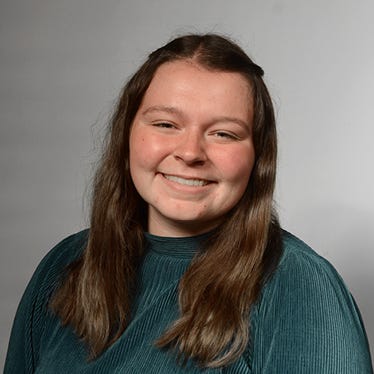
During a one-hour conversation with Carter Morgan, Cayuga, Ind., his phone rang more than once with farmers on the other end, calling for advice or to share their latest experiences.
Being a mentor for other farmers was not in Morgan’s plans, but he’s found it to be a natural fit. He is no longer in the position that kick-started his mentoring journey, as he continues to farm full time, but the lasting effects of his previous work have prompted farmers to keep him in their networks.
How he started
Morgan was hired into a role with his local soil and water conservation district in 2017, where his mission was to help farmers make sense of their INField Advantage data while promoting conservation. Those early days on the job were spent driving around and stopping to talk with farmers about their conservation goals.
“That was hard and not very fun,” Morgan says. “There were days I would drive eight hours and literally not find anybody.”
After some time, he began building connections. Some folks were not so keen on the idea of discussing conservation with Morgan, but many times they would break down that wall after they got to know him. Word spread quickly that Morgan was there to field any conservation questions.
“It turned into people knew that I was there, and if you had questions about cover crops or no-till and those sorts of things, call Carter,” Morgan adds. “It took many years to get to that point.”
Morphing into a mentor
Morgan shares that the farmers he worked with slowly started trickling in questions about other aspects of farming. No farming topic was off-limits, but he could not tell farmers exactly what they should do. Rather, he could share more about his experiences.
Working in his family’s farming operation proved useful for sharing experiences. For example, he would receive calls with questions about planter setup.
“I wouldn’t tell them what to do, but I could tell them, ‘That will work totally fine because that’s the exact same planter setup that we have on our farm, and here’s what we do,’” Morgan says. “So, I was able to lean on our farm’s experiences a lot, and that kind of helped settle some of those questions.”
He could also use other farmers’ experiences as a guide — he just kept their names out of it.
“As I built those connections and people called and were telling me what they were doing, I could lean on that,” Morgan adds. “So, someone would call and say, ‘I think I want to spray this herbicide to kill this weed.’ And I could say, ‘Yeah, that works, because this guy did it.’”

HELP EACH OTHER: While farming is a competitive business, Carter Morgan says it’s important to be open and answer questions. Here, he talks with his brother Brent.
Drawing boundaries
Morgan says there was never a time when he had to explicitly lay out rules or boundaries for these mentoring relationships. There was an understanding that he was a farmer, too, and his seasons would look the same as the folks he was advising.
“My boundaries pretty much were, if you’re in the field, I’m probably in the field,” Morgan says. “I’d answer the phone, at times, from 6 a.m. to midnight.”
However, those extremes were not common. Most of the time, Morgan says he would keep his conversations within typical working hours. And he says the calls were never about problems big enough that he’d have to stop what he was doing. Most of the time, people were just curious.
“I generally had guys ask questions because their neighbor was doing something,” Morgan adds. He explains that rather than asking the neighbor why they did things a certain way, these farmers felt more comfortable opening up to Morgan and seeing what he would recommend.
Keep it going
Although Morgan is no longer in that role with the SWCD, he still gets regular calls from the farmers he mentored who want another opinion. Most of those farmers just want him to drive past one of their fields and let them know what he thinks about a certain practice. Morgan does not get tired of this; he simply wants to keep helping.
“There is some competitiveness, but we all need to help each other,” he says.
If you are interested in becoming a mentor for other farmers or getting advice, Morgan recommends visiting your local Farm Service Agency, Natural Resources Conservation Service office or SWCD office to get connected with other farmers doing certain practices. He says it can be as simple as connecting with college friends who have moved to different parts of the state.
“In every neighborhood, there’s somebody doing things like this,” Morgan says, adding that people are there who are willing to share advice.
About the Author(s)
You May Also Like






